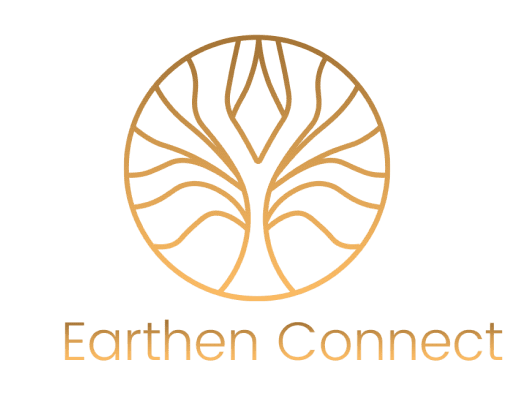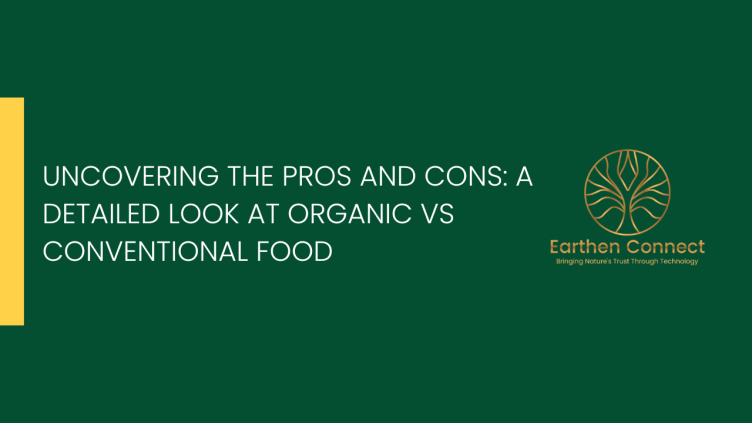As consumers become increasingly aware of the impact of their food choices on their health and the environment, the debate over organic vs conventional food continues to gain momentum. Earthen Connect, a leading provider of sustainable food options, recognizes the importance of understanding the differences between these two types of food. While both organic and conventional food has their own unique benefits and drawbacks, it’s crucial to consider factors such as farming methods, nutritional content, and environmental impact when making informed decisions about what to eat. By exploring the key differences between organic and conventional food, Earthen Connect aims to empower consumers to make informed choices that align with their personal values and health goals.
⦁ Farming methods: Organic food is grown without the use of synthetic pesticides, fertilizers, or genetically modified organisms, while conventional food may use these methods.
⦁ Soil quality: Organic farming practices aim to enhance soil health, while conventional farming methods may focus more on yield and productivity.
⦁ Cost: Organic food is often more expensive than conventional food due to higher production costs and lower yields.
⦁ Animal welfare: Organic farming standards require animals to be raised in conditions that promote their health and welfare, while conventional farming may prioritize production efficiency over animal welfare.
⦁ Pesticide residue: Organic food has lower levels of pesticide residues than conventional food.
⦁ Antibiotic use: Organic farmers are restricted from using antibiotics on their animals, while conventional farmers may use antibiotics to prevent or treat disease.
⦁ Genetic modification: Organic farming prohibits the use of genetically modified organisms, while conventional farming may use genetically modified seeds.
⦁ Fertilizer use: Organic farming relies on natural fertilizers, such as compost, while conventional farming may use synthetic fertilizers.
⦁ Soil conservation: Organic farming practices promote soil conservation, while conventional farming may lead to soil degradation.
⦁ Water conservation: Organic farming practices aim to conserve water resources, while conventional farming may lead to water pollution and overuse.
⦁ Biodiversity: Organic farming promotes biodiversity, while conventional farming may reduce it.
⦁ Flavor: Some people believe that organic food has a better flavor than conventional food.
⦁ Nutritional content: There is limited scientific evidence to support claims that organic food is nutritionally superior to conventional food.
⦁ Food safety: Both organic and conventional food can pose food safety risks, but organic food may have lower levels of chemical residue.
⦁ Environmental impact: Organic farming has a lower environmental impact than conventional farming.
⦁ Support for small farmers: Buying organic food supports small-scale farmers and sustainable agriculture.
⦁ Long-term sustainability: Organic farming is considered more sustainable in the long term, while conventional farming may be more productive in the short term.
⦁ Certification: Organic food must meet specific standards and be certified by an accredited organization, while there is no certification requirement for conventional food.
⦁ Traceability: Organic food often has a clear chain of custody, allowing for easy traceability, while conventional food may have a more complex supply chain.
⦁ Consumer demand: Consumer demand for organic food is growing, while demand for conventional food remains stable.
In conclusion, the choice between organic and conventional food is a personal one that should be based on individual priorities and values. While conventional food may offer greater convenience and accessibility, organic food offers the assurance of being grown without harmful chemicals and in a way that supports a sustainable food system. Regardless of the choice, it is important to be an informed consumer and to consider the impact of food choices on health, the environment, and the wider food system. Earthen Connect remains dedicated to providing consumers with the information and resources needed to make informed decisions about their food choices.”As consumers become increasingly aware of the impact of their food choices on their health and the environment, the debate over organic vs conventional food continues to gain momentum. Earthen Connect, a leading provider of sustainable food options, recognizes the importance of understanding the differences between these two types of food. While both organic and conventional food have their own unique benefits and drawbacks, it’s crucial to consider factors such as farming methods, nutritional content, and environmental impact when making informed decisions about what to eat. By exploring the key differences between organic and conventional food, Earthen Connect aims to empower consumers to make informed choices that align with their personal values and health goals.As consumers become increasingly aware of the impact of their food choices on their health and the environment, the debate over organic vs conventional food continues to gain momentum. Earthen Connect, a leading provider of sustainable food options, recognizes the importance of understanding the differences between these two types of food. While both organic and conventional food have their own unique benefits and drawbacks, it’s crucial to consider factors such as farming methods, nutritional content, and environmental impact when making informed decisions about what to eat. By exploring the key differences between organic and conventional food, Earthen Connect aims to empower consumers to make informed choices that align with their personal values and health goals.As consumers become increasingly aware of the impact of their food choices on their health and the environment, the debate over organic vs conventional food continues to gain momentum. Earthen Connect, a leading provider of sustainable food options, recognizes the importance of understanding the differences between these two types of food. While both organic and conventional food have their own unique benefits and drawbacks, it’s crucial to consider factors such as farming methods, nutritional content, and environmental impact when making informed decisions about what to eat. By exploring the key differences between organic and conventional food, Earthen Connect aims to empower consumers to make informed choices that align with their personal values and health goals.
Enjoy 5% OFF on your order. Use Code: FOREVER5

